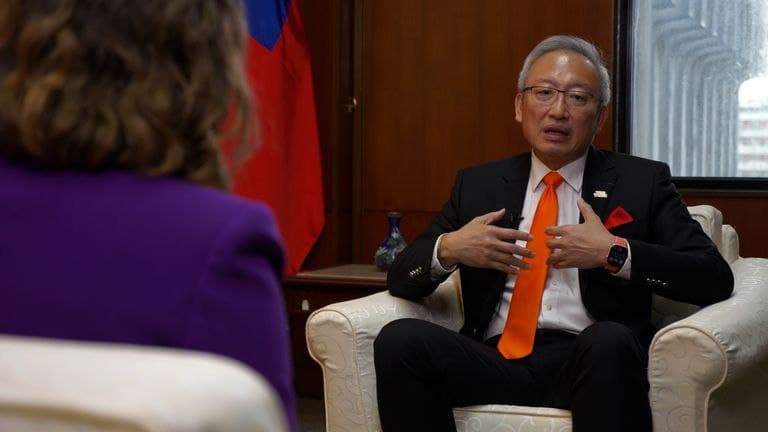Taiwan"s Deputy Foreign Minister Warns of Imminent Chinese Invasion Plans
In a startling development, Taiwan’s Deputy Foreign Minister Wu Chihchung has raised alarms over China"s preparations for a potential invasion of Taiwan. Speaking at a press conference on Wednesday, Wu underscored the urgency of the situation, claiming that intelligence reports indicate a significant build-up of Chinese military assets aimed at executing an invasion plan. This announcement has sent ripples of concern across the region, raising questions about Taiwan"s security and the broader implications for international relations.
Background & Context
The tension between Taiwan and China has a long and complex history. Following the Chinese Civil War in 1949, the Republic of China (Taiwan) and the People"s Republic of China (China) have existed as separate entities, with Beijing consistently viewing Taiwan as a breakaway province. In recent years, China"s military activities in the Taiwan Strait have escalated, including increased naval drills and air incursions. Taiwan"s government has repeatedly expressed concerns over these actions, viewing them as direct threats to its sovereignty.
Internationally, Taiwan’s status remains a contentious issue. The United States has maintained a policy of strategic ambiguity, providing military support to Taiwan while officially recognizing the One China policy. This delicate balance is becoming increasingly strained as China intensifies its military posturing in the region, leading to heightened fears of a possible conflict.
Key Developments
During the press conference, Wu Chihchung emphasized that the Taiwanese government is closely monitoring Chinese military movements, which he described as “unprecedented.” He highlighted that the current military exercises conducted by China are not merely routine but appear to be rehearsals for a potential invasion. “We cannot ignore the signs,” Wu stated, urging the international community to recognize the gravity of the situation. “Taiwan is prepared to defend itself, but we need global support.”
In response to Wu"s remarks, Chinese officials dismissed the claims as "unfounded" and accused Taiwan of escalating tensions. However, this back-and-forth underscores a growing divide between the two sides, as well as the complex web of international alliances that could be tested should military action occur. As previously reported, the situation is reminiscent of other global flashpoints where military posturing has led to real conflict, such as in Eastern Europe with Russia"s actions in Ukraine.
Broader Impact
The implications of a potential Chinese invasion of Taiwan extend far beyond the immediate region. Analysts warn that such a move could trigger a significant geopolitical crisis, drawing in the United States and its allies. Military experts suggest that any conflict could disrupt global supply chains, particularly in technology and semiconductors, where Taiwan plays a critical role as a leading producer.
Moreover, the United States has reiterated its commitment to Taiwan"s defense, which could lead to a broader confrontation between the U.S. and China. The situation is compounded by China"s growing assertiveness in the South China Sea and its increasing military cooperation with Russia, creating a multifaceted challenge for Western powers. As seen in recent developments, the international community must grapple with how best to respond to these mounting tensions, balancing diplomatic engagement with deterrent measures.
What"s Next
As tensions escalate, Taiwan is expected to bolster its military readiness and seek further support from international allies. The upcoming months will be crucial, with Taiwan likely to engage in joint military exercises with the U.S. and other partner nations to showcase its defense capabilities. Furthermore, Taiwan"s government may ramp up diplomatic efforts to secure formal recognition and support from countries that have been hesitant to engage due to China"s influence.
In the meantime, observers will be closely monitoring China"s military movements and political rhetoric. The potential for miscalculation in this high-stakes environment remains a pressing concern. As the situation unfolds, the world watches closely, aware that the stakes could not be higher for Taiwan and the broader geopolitical landscape.


![[Video] Heavy clashes and gunfire reported in Baghdad, Iraq](/_next/image?url=%2Fapi%2Fimage%2Fthumbnails%2Fthumbnail-1768342239932-848qsh-thumbnail.jpg&w=3840&q=75)




![[Video] Gunfire between Iraqi security forces and Sadr militias in Baghdad](/_next/image?url=%2Fapi%2Fimage%2Fthumbnails%2Fthumbnail-1768343508874-4redb-thumbnail.jpg&w=3840&q=75)
